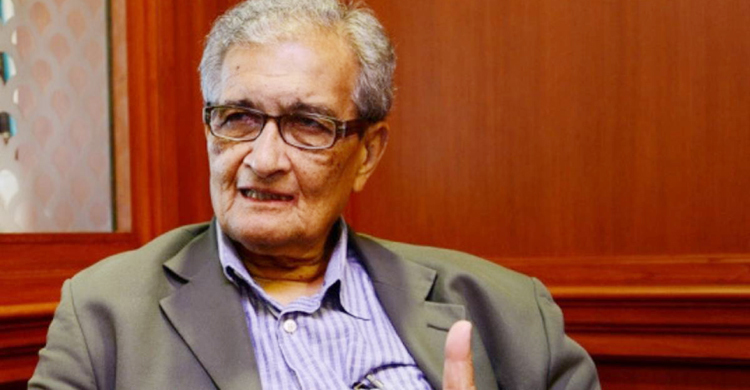“Not proud as an Indian...”: Amartya Sen’s critique of Kashmir move

Nobel laureate Dr Amartya Sen on Monday vehemently criticised the government's move on Kashmir, saying it not only emphasised majority rule "as opposed to it sustaining the rights of all human beings". "I don't think ultimately you will have any resolution in Kashmir without democracy," he told NDTV in an interview.
Pointing out the loopholes in the government's decision on multiple levels, the 85-year-old told NDTV: "As an Indian, I am not proud of the fact that India, after having done so much to achieve a democratic norm in the world - where India was the first non-Western country to go for democracy - that we lose that reputation on the grounds of action that have been taken".
The government's move earlier this month to end Jammu and Kashmir's special status and bifurcate the state into two union territories have received political and popular support.
The bifurcation bill received support from several key opposition parties and individual leaders. Even a section of Congress leaders applauded the end to the special status, which has now put Jammu and Kashmir on par with the rest of the country - doing sway with its own constitution, flag, penal code and the power to decide who buys land in the state.
Amid anticipation about the possibility buying land in Jammu and Kashmir by people from other states, Dr Sen said it should have been "something for the people of the state (Jammu and Kashmir) to decide".
"This is something in which Kashmiris have a legitimate point of view because it is their land," he said.
He was also critical of the government's decision to keep the mainstream political leaders of Jammu and Kashmir under arrest.
"I don't think you will ever have fairness and justice without hearing the voices of the leaders of the people and if you keep thousands of leaders under restraint and many of them in jail, including big leaders who have led the country and formed governments in the past ... you are stifling the channel of democracy that makes democracy a success," he said.
The government has described its decision to place Jammu and Kashmir under a massive security blanket as "preventive measures" to prevent backlash that might cost lives.
"That's the classic colonial excuse. That's how the British ran the country for 200 years," Dr Sen said. "The last thing that I expected when we got our independence... is that we would go back to our colonial heritage of preventive detentions," he added.

